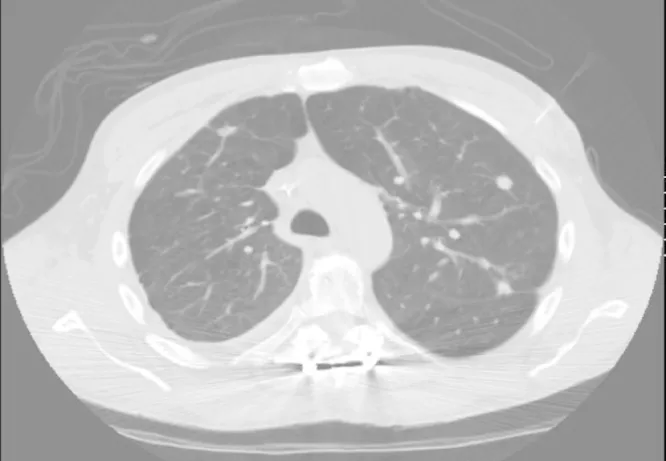Heartworm disease is a severe and potentially fatal condition primarily affecting dogs, but it raises a crucial question for many pet owners: can people get heartworms from dogs? While the thought of contracting a parasite from a beloved pet can be alarming, the good news is that human heartworm infection is rare, and it’s not transmitted directly from your dog to you. Understanding how heartworm spreads and its unique impact on humans can help alleviate concerns and highlight the importance of protecting your canine companion. To ensure your dog stays healthy, regular preventative care is essential, including using best worming and flea tablets for dogs as recommended by your veterinarian.
What Exactly is Heartworm and How Does it Spread?
Heartworm, caused by the parasitic nematode Dirofilaria immitis, is a serious disease in dogs, often leading to severe lung disease, heart failure, and damage to other organs. The life cycle of heartworm is complex and relies entirely on mosquitoes. An infected mosquito bites a dog, transmitting microscopic heartworm larvae (microfilariae) into the dog’s bloodstream. These larvae mature into adult worms, which can grow up to a foot long and reside in the heart, lungs, and associated blood vessels of infected animals. When another mosquito bites an infected dog, it ingests microfilariae, which then develop further within the mosquito, making the mosquito capable of infecting another animal when it bites again. This mosquito-borne transmission is critical; without the mosquito vector, the disease cannot spread.
Humans, along with other animals like cats, wolves, and foxes, are considered accidental or “dead-end” hosts. This means that while they can be infected, the heartworms typically cannot complete their full life cycle or reproduce within them. The infection in these hosts is usually limited and rarely causes the severe systemic illness seen in dogs.
The Rare Case of Human Heartworm Infection
When a human is bitten by a mosquito carrying infective heartworm larvae, the larvae can enter the human bloodstream. Similar to what happens in a dog, these larvae migrate from the subcutaneous tissue into the vessels. However, the human body is not a suitable environment for Dirofilaria immitis to fully mature or reproduce. The worms typically die prematurely, most commonly in the pulmonary arteries. As the dying worm embolizes (travels and gets lodged) in the pulmonary vessels, it can cause an infarction—a localized area of tissue death—and eventually forms a fibrous nodule in the lungs.
These pulmonary nodules are the most common manifestation of human heartworm infection, a condition sometimes referred to as pulmonary dirofilariasis. The presence of these nodules is often discovered incidentally during imaging tests for unrelated conditions, as they typically do not cause noticeable symptoms. The challenge arises because these nodules can sometimes mimic more serious conditions, such as cancerous tumors, leading to concern and further diagnostic procedures. Ensuring your pets are on a consistent prevention plan, such as a flea and worm treatment for dogs monthly, is crucial in reducing the overall risk of heartworm in the environment.
Symptoms of Heartworm in Humans: What to Look For
The vast majority of individuals infected with Dirofilaria immitis are asymptomatic, meaning they experience no symptoms at all. When symptoms do occur, they are typically non-specific and can include a cough, chest pain, or, less commonly, wheezing or coughing up blood (hemoptysis). These symptoms are usually mild and are directly related to the inflammation caused by the dying worm and the formation of the pulmonary nodule. It’s important to remember that these symptoms are not unique to heartworm and can be indicative of many other respiratory conditions. Therefore, a diagnosis of human heartworm often requires a high degree of suspicion and the exclusion of other, more common causes of pulmonary nodules.
The Diagnostic Challenge: When Heartworm Mimics Other Diseases
Because human heartworm infection primarily manifests as pulmonary nodules and is often asymptomatic, diagnosis frequently begins with an incidental finding on a chest X-ray or CT scan. In many cases, these nodules raise concern for more serious conditions like lung cancer, especially in individuals with risk factors such as a history of smoking. This often necessitates invasive diagnostic procedures, such as biopsies, to determine the nature of the nodule.
A biopsy of a heartworm nodule typically reveals a necrotic granuloma—a type of inflammatory mass characterized by central tissue death. While this finding is consistent with a parasitic infection, it is not pathognomonic (specifically indicative) of heartworm alone, requiring further tests to rule out fungal, bacterial, or mycobacterial infections. Specific diagnostic tests for human dirofilariasis, such as Dirofilaria-specific antibody tests (ELISA), are not widely available and can sometimes yield inaccurate results due to cross-reactivity with other filarial parasites. Therefore, the diagnosis of human heartworm is often a clinical one, made after ruling out other causes in the appropriate epidemiological and clinical context.
 CT scan of the thorax showing multiple pulmonary nodules.
CT scan of the thorax showing multiple pulmonary nodules.
The image above illustrates multiple pulmonary nodules observed in a CT scan of the thorax, a common finding in rare cases of human heartworm infection. These nodules often appear without symptoms and can be mistaken for other lung conditions, including neoplastic growths, necessitating further investigation.
One feature often associated with parasitic infections in general is peripheral eosinophilia (an elevated level of eosinophils, a type of white blood cell). However, in human heartworm cases, eosinophilia is only observed in a small percentage of patients (estimated between 6.5% and 15%). This makes it an unreliable marker for diagnosis. The absence of eosinophilia, as seen in many reported cases, further complicates the diagnostic process and highlights why human heartworm often goes undetected or is misdiagnosed until a biopsy is performed.
 Parasitic nodule demonstrating necrotizing granuloma with histiocytes and fibrosis at the edge.
Parasitic nodule demonstrating necrotizing granuloma with histiocytes and fibrosis at the edge.
This microscopic image shows a parasitic nodule, illustrating a necrotizing granuloma with histiocytes and fibrosis at the edge. This histological finding is characteristic of a heartworm infection in humans, indicating the body’s inflammatory response to the dying parasite.
Understanding Your Risk: Can Your Dog Give You Heartworm?
It’s a common misconception that humans can contract heartworms directly from their dogs. To reiterate, this is not the case. Your dog cannot transmit heartworms to you simply by being in close contact, licking you, or even if you come into contact with their blood or feces. The essential link in the transmission chain is the mosquito. Therefore, dog ownership itself is not considered a direct risk factor for human heartworm infection.
However, certain environmental factors can increase the likelihood of human exposure to infected mosquitoes. These risk factors include:
- High Dog Population: Areas with a large number of dogs, especially stray or untreated dogs, can serve as a reservoir for heartworm microfilariae, increasing the chance of mosquitoes becoming infected.
- High Mosquito Population: A dense mosquito population in a given area means more opportunities for mosquitoes to bite both infected dogs and humans.
- Degree of Human Exposure to Mosquito Bites: Individuals who live or spend significant time in areas with infected dogs and abundant mosquitoes are at a slightly elevated risk due to increased exposure to mosquito bites.
The key takeaway is that the risk is indirect and entirely dependent on the presence of infected mosquitoes. This underscores the importance of a comprehensive parasite prevention strategy for your pets. Considering a best worm flea and tick treatment for dogs can protect your dog and, indirectly, contribute to reducing the overall heartworm prevalence in your local environment.
Protecting Yourself and Your Canine Companion from Heartworm
The most effective way to protect both your dog and, by extension, yourself from heartworm disease is through a two-pronged approach: consistent heartworm prevention for your pets and effective mosquito control.
For Your Dogs:
- Regular Heartworm Preventatives: This is the cornerstone of protection for dogs. Monthly oral medications or topical treatments, or annual injectable options, effectively kill heartworm larvae transmitted by mosquito bites before they can mature. Consult your veterinarian to determine the best preventative for your dog based on their lifestyle and local heartworm prevalence.
- Annual Testing: Even with preventative medication, annual heartworm testing for dogs is crucial. This helps ensure the medication is working and catches any potential infections early, allowing for timely treatment.
For Humans (and indirectly, dogs):
- Mosquito Control: Since mosquitoes are the sole vector for heartworm transmission, reducing their population and preventing bites is key.
- Eliminate Standing Water: Mosquitoes breed in stagnant water. Regularly empty bird baths, clean gutters, and remove any containers that collect water around your home.
- Insect Repellent: When outdoors, especially during peak mosquito activity (dawn and dusk), use an EPA-approved insect repellent.
- Protective Clothing: Wear long sleeves and pants when in mosquito-prone areas.
- Screens: Ensure windows and doors have intact screens to keep mosquitoes out of your home.
By proactively protecting your dog from heartworm, you are not only safeguarding their health but also playing a vital role in reducing the overall reservoir of heartworm microfilariae in the environment, which indirectly lowers the minimal risk to humans. In addition to heartworm prevention, considering home remedies to prevent fleas on dogs can further enhance your pet’s overall parasite protection.
The Importance of Veterinary Care and Regular Check-ups
Regular veterinary check-ups are paramount for your dog’s health and are your first line of defense against heartworm disease. During these visits, your veterinarian will discuss appropriate heartworm prevention strategies, conduct necessary diagnostic tests, and provide guidance tailored to your dog’s specific needs and your geographic location. Early detection of heartworm in dogs is critical, as treatment can be complex and costly once adult worms establish themselves. Preventative measures are far safer, more effective, and more economical than treating an active infection.
Maintaining a proactive approach to your pet’s parasite control helps create a healthier environment for everyone in your household and community. While the focus of this article is heartworm, similar proactive measures apply to other common parasites. For example, understanding home remedy for fleas and ticks for dogs can also contribute to a holistic approach to parasite management.
In conclusion, while the question of “can people get heartworms from dogs” is understandable, it’s important to remember that human heartworm infection is an extremely rare, incidental event that requires a mosquito intermediary. It is not transmitted directly from your dog to you. The most effective way to prevent human exposure and, more importantly, to protect your beloved canine companion, is through consistent heartworm prevention for your dog and diligent mosquito control in your environment. Prioritize regular veterinary care and stay informed about the best practices for parasite prevention to ensure a healthy and happy life for your furry family member.
